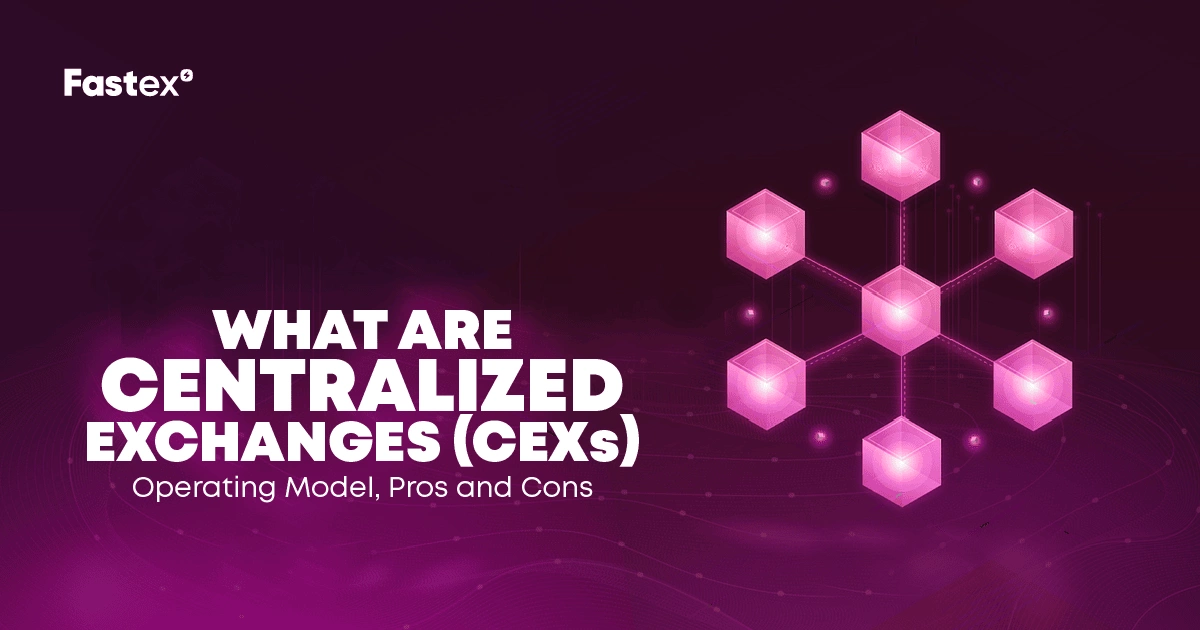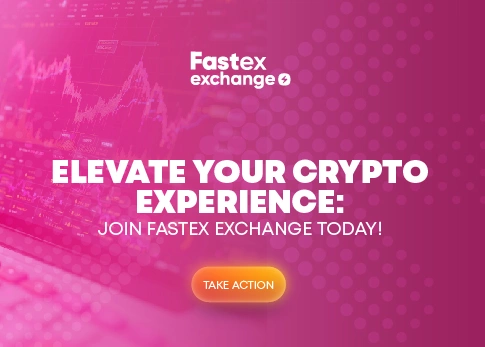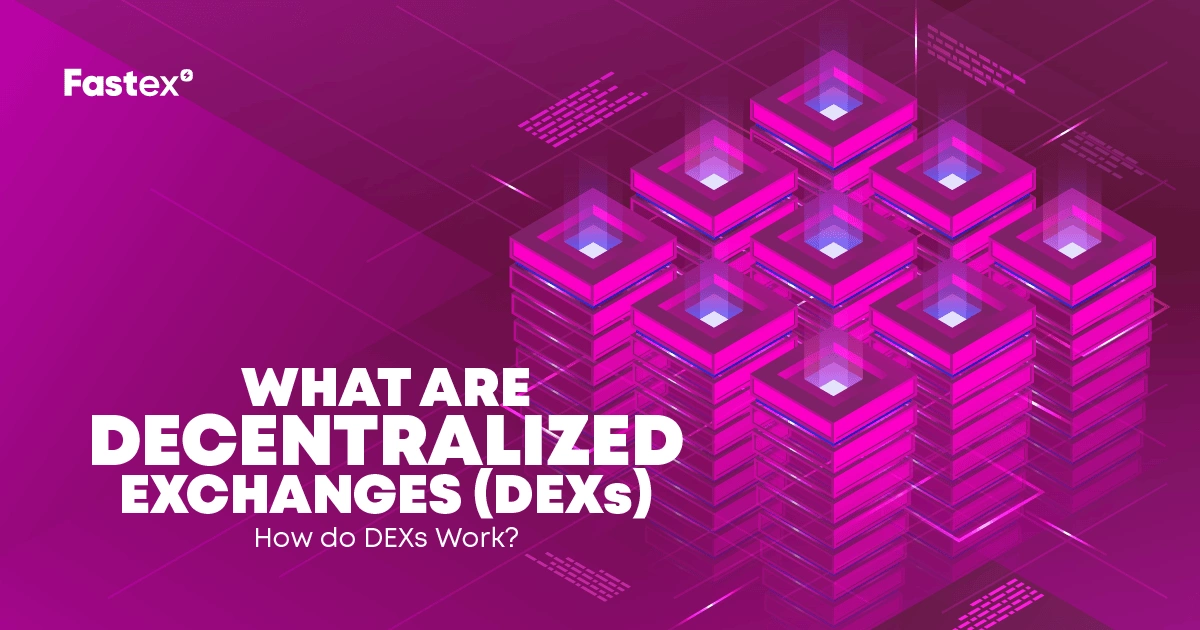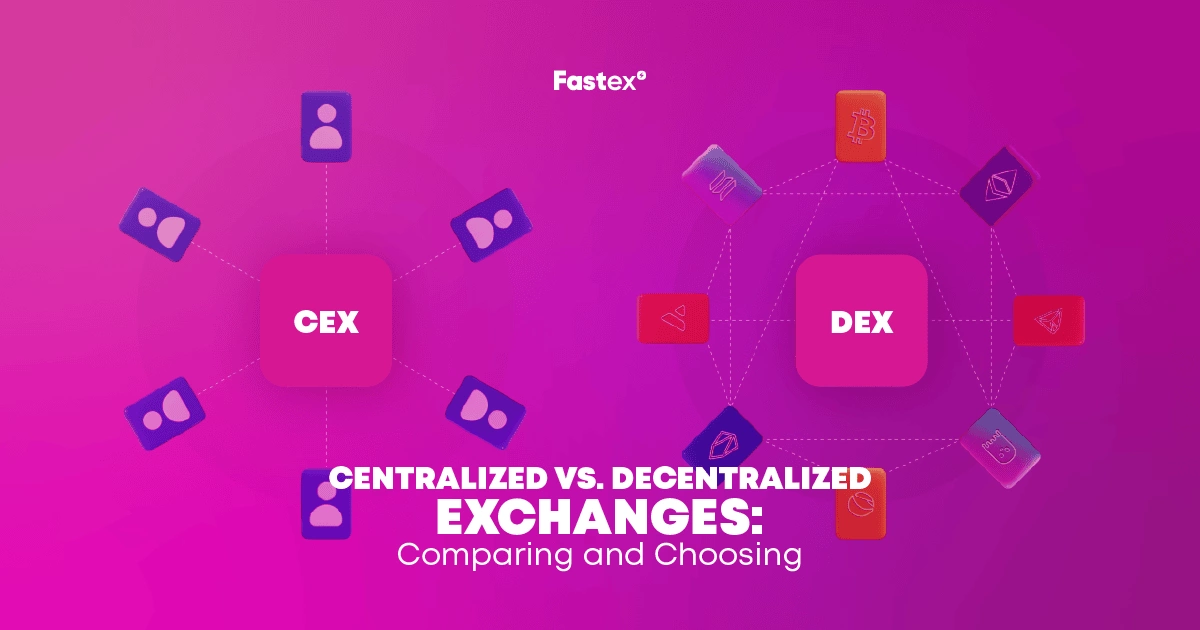
Centralized Exchanges (CEXs)
In recent years, the cryptocurrency industry has grown in popularity. Yet, trading cryptocurrencies carries big risks and traders need to be well-informed about market dynamics. Prices can fluctuate very often, causing unexpected risks. The high-risk factor keeps some individuals away from cryptocurrencies due to uncertainties, while others search for volatility and actively participate in trading.
Trading platforms are divided into two types: centralized exchanges (CEX) and decentralized exchanges (DEX).
Choosing the right exchange depends on your investment goals and risk tolerance. Learn more about the differences between Centralized vs Decentralized Exchanges.
In this article, we will discuss what centralized exchanges are and how they operate. These exchanges are the most preferred among regular users since they are the main way of purchasing digital currencies, particularly for newcomer crypto investors.
Understanding Centralized Exchanges (CEXs)

A centralized cryptocurrency exchange (CEX) is a platform for exchanging digital currencies that is run by a central institution that serves as an intermediary between cryptocurrency buyers and sellers. It is governed by a centralized authority, which is often the firm that founded it. The centralized exchanges are the first version of cryptocurrency trading.
In the beginning, CEXs were anonymous and did not ask traders to disclose who they were. But as more and more people began utilizing these exchanges, the situation altered as international financial regulators grew to worry about the anonymity of the exchanges. Trading now requires users to authenticate themselves. A large variety of orders are often available on centralized exchanges to enable better trading. Limit orders, stop losses, stop limit orders, margin trading, and leverage trading are all available on CEXs. The bulk of exchanges keep their assets in cold storage. In this manner, there is no internet connection and the valuables are safe from theft.
The centralized exchange is the central storage of all user funds on the exchange. This leads to the scheme's apparent benefits and drawbacks. The benefits include essentially site guarantees, speed of transaction, dependability, and technical support. However, your money is in the hands of someone else, all transactions are transparent to fiscal and governmental agencies, and international sanctions are supported based on location.
Throughout the interviews held by Zhixuan Zhou, it was found that users prefer CEXes due to their good overall experience, learnability, and low transaction fees. High gas/transaction fees are the main concerns of participants for DEXes.
A worth mentioning fact regarding centralized exchanges is that they are easy to use, especially for beginners. They offer user-friendly interfaces and often allow users to buy crypto with fiat currency. However, decentralized exchanges (DEXs) are becoming increasingly popular and offer some advantages, though they can be more complex to use.
Operating Model
CEXs are quite easy to use. A centralized exchange (CEX) maintains digital assets on behalf of clients and simplifies the trading mechanics by establishing easy conditions. Here is how it works:
Any centralized exchange works like a regular bank. So, to buy any currency at a bank, you first deposit one currency into a bank account and only then convert it into another. It’s the same scheme with cryptocurrency, to top up your deposit with a card or cash online or at the exchange points, and then buy, sell, and exchange.
In a centralized exchange, the money remains on the exchange until you withdraw it. CEXs also provide custody services for both fiat and cryptocurrencies. When you deposit money into your account, the exchange ensures its safety. Thus, your funds are in custodial storage. When you buy cryptocurrency, it is stored in your exchange wallet. Until you transfer them to your own wallet, the cryptocurrency remains in the custody of the exchange.
Therefore, users cannot trade anonymously on centralized exchanges. Customers are required to pass KYC (know your customer) passport verification and send photos of the document, and a selfie with it confirming identity. Once this process is completed, you will be able to trade freely. Also, using the passport, users can restore access to their wallet if they have lost their password.
Just like traditional finance, where there are maker fees and taker fees, crypto trading also has transaction fees. Transaction fees are the main source of income for centralized exchanges and can vary between exchanges and trade types (spot vs margin). And as a clearing counterparty, CEXs help to protect users' privacy/personal data by matching orders against the order book. Technically, users buy cryptocurrency from other users. However, to protect the user's identity, the transaction is conducted on behalf of the exchange, not the user.
Key Advantages of a Centralized Crypto Exchange
Centralized crypto exchanges have many advantages, which is why they remain extremely popular. Here are some of them:
User-friendly interface
Centralized exchanges offer their users many advantages, one of which is a user-friendly interface. These platforms are usually designed easily allowing both new and experienced users to simply navigate, deposit, and withdraw their funds.
Liquidity
When it comes to liquidity, centralized exchanges have higher amounts compared to decentralized exchanges (DEX). One of the most important things for traders who wish to make quick deals with little volatility is liquidity. It makes it easy for the user to buy or sell an asset without changing its market value. The more liquid the exchange is, the easier it is to trade an asset without reducing its value.
Wide range of cryptocurrencies
Established centralized exchanges typically support a wider range of cryptocurrencies for trading than decentralized ones. The wide range of choices they offer is beneficial to those who wish to diversify their financial assets. Many exchanges offer a wide range of products and services in one place, making it easier for users to manage their assets. This can be especially helpful for those looking to diversify their holdings, but it's important to understand how to do so effectively.
Check out our guide about diversifying crypto portfolio.
Support and protection
Centralized Exchanges offer high support and protection, which is extremely important for less experienced traders and can be helpful in acknowledging any instances of exchange hacks and security breaches.
They can safely trade on exchanges knowing that their funds are safe. It is also worth noting that if the platform is hacked and funds are stolen, many exchanges guarantee to cover the losses. Accordingly, the centralized exchanges store the private keys of their clients' wallets, which is a critical component of safe currency transfers.
Regulatory and protection
Many centralized exchanges have strict regulatory systems and here the regulatory landscape is dynamic and new regulations are constantly evolving in the crypto space. This is a vital element that attracts investors who require a certain degree of regulation to deal with cryptocurrencies. Centralized exchanges also typically require platform users to undergo a Know Your Customer (KYC) process, as a regulatory requirement to verify users' identities and help to stop illegal activities such as money laundering or hacking.
Key Disadvantages of a Centralized Crypto Exchange
Unfortunately, centralized exchanges also have several disadvantages. They may not be too critical, but you need to be aware of them.
Wallets management
Users cannot manage the keys to their cryptocurrency wallets, which is one of the biggest minuses of using centralized exchanges. This means that traders are unable to access their assets directly, which may lead to large losses and sudden collapses. The centralized exchanges have the authority to freeze or seize your money at any moment since it has the private keys to your wallet. As a result, the exchange simply gains possession of your money.
Strict regulations
Another disadvantage is that many centralized exchanges are controlled by regulated organizations, which in turn are controlled by regulators. Regulators typically have the power to impose strict restrictions, such as new licensing requirements and compliance rules on platforms, and this can sometimes limit their ability to support certain tokens or serve users in certain jurisdictions.
Conflict of interest
The lack of services may result in a conflict of interest between exchange owners and users because their decisions are made to maximize profit. In order to boost their profits at the expense of consumers, many centralized exchanges could turn to unethical tactics including faking market data, which will have a bad effect on the user experience.
Transaction fees
Transaction costs are another problem of centralized exchanges. All orders, whether they are buy or sell, include a transaction charge. The overall amount of commissions paid might rise significantly over time, despite the fact that they are often small amounts.
Examples of Popular CEXs
Choosing dependable and impartial platforms will guarantee you to benefit from all the advantages of a centralized cryptocurrency exchange while also avoiding the danger of bans and hacking. Follow the cryptocurrency exchanges introduced:
Fastex Exchange
Fastex Exchange is a part of the Fastex Ecosystem and supports numerous cryptocurrencies and fiat currencies on its own simple and efficient platform. Here it is possible to trade options such as limit, stop-limit, market, stop-market, and trading API. For more comfort, the platform also offers tools for market analysis and monitoring. Fastex platform is designed to cater to various needs, offering diverse trading options.
By offering a transparent and secure trading platform, Fastex Exchange uses advanced security measures such as multi-factor authentication and SSL encryption to ensure the safety of funds and data. Fastex Exchange has been garnered initial approvals from VARA of Dubai, UAE, and is on track to secure the VATP license in Hong Kong. Moreover, having a Lithuanian license it is a registered Virtual Currency Exchange Operator and Depository Virtual Currency Wallet Operator.
Bitget
Bitget Exchange provides trading opportunities for more than 20 million users from 100 countries. Trading turnover in 24 hours is $1 billion, and the exchange's confirmed reserves are estimated at $1.7 billion. The exchange has some of the most favorable trading conditions in the entire crypto market as the commission on the spot is 0.1%.
Bitget developed a decentralized multi-chain wallet that works with over 80 networks. The exchange offers Converter, Copy Trading, and Grid Trading as alternative tools. Additionally, for fans of digital photos, the wallet ecosystem has an NFT marketplace.
MATBEA
Since its launch in 2013, MATBEA has grown to become a significant player in the world of digital currencies. It provides users access to many well-known cryptocurrency trading platforms. You may trade a wide range of cryptocurrencies on MATBEA, including Tether, Litecoin, Monero, Ethereum, and Bitcoin. It allows the balance to be filled up with any suitable currency with no fee.
On MATBEA you can trade cryptocurrencies, replenish your deposit, and withdraw funds through P2P merchants. This allows users to independently choose the conditions for commissions, and minimum and maximum transaction amounts.
Also, for the convenience of clients who make a large number of transactions, MATBEA has a mass payment function available - withdrawal of funds to different details in one application.
BYBIT
The trading platform, created in 2018, is one of the twenty largest platforms in terms of spot trading volume and one of the three leaders in derivatives.
The trading platform has wide functionality that allows for staking cryptocurrencies, purchasing non-fungible tokens in its own NFT market, conducting spot, futures, and P2P trading, buying, selling, and exchange various cryptocurrencies and fiat money.
The exchange has a fairly high liquidity ratio, which guarantees accurate transactions and minimizes the chance of slippage. Meanwhile, BYBIT provides customers with the opportunity to buy cryptocurrency for fiat using a bank card.
Conclusion
Centralized exchanges are the most straightforward means of breaking into the crypto industry. They enable you to purchase cryptocurrency using fiat and provide support to beginners.
In any event, it's important to keep in mind that cryptocurrencies are an extremely unpredictable and risky investment, and there are almost always many more losers than winners in this market.
It is highly recommended not to keep large amounts of money on centralized exchanges as they are mostly created for trading. So that the traders run the danger of having their accounts frozen while using any known or unknown exchange.
Disclaimer: Includes third-party opinions. No financial advice.




